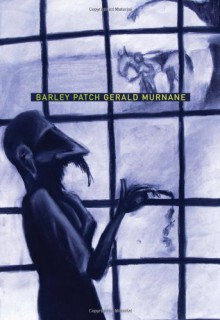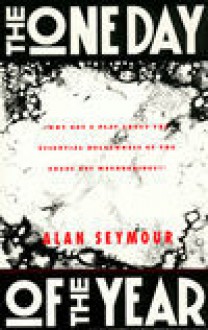 http://msarki.tumblr.com/post/56737790987/barley-patch-by-gerald-murnane
http://msarki.tumblr.com/post/56737790987/barley-patch-by-gerald-murnaneI have read enough bad reviews of Barley Patch to realize a good book when I see it. The negatives relate mostly to readers who did not finish the book or give enough effort to discover the goodness in it. I would guess that many of them were being introduced to the writing of Murnane for the very first time. If an earlier Murnane title such as The Plains had already been read there is no possible way the reader would have quit on him just because he admitted to quitting the writing of fiction fifteen years prior to the writing of this book. There are amazing parts throughout but one must actually read the book in order to get to them. Murnane is a very serious writer who is interested in real people even in light of his writing fiction. His characters are not "made-up" in the sense of unrealistic, but instead have flaws that make them susceptible to appearing in his fiction regularly. The unblemished woman is far less interesting to Murnane than one sporting freckles or even liver spots if truth be told.
I understand that I am reading the Murnane oeuvre incorrectly as I began my personal introduction with The Plains and then continued on into this title. It has been strongly suggested that I read Murnane's work in the order in which it was written, but I kind of like breaking the rules just as much as Murnane apparently does as well. He repeats himself, and revisits characters often enough that some readers consider him a bore. I do not. I like his style and the words he chooses are exquisite in his story telling. He writes of things most readers might find dull, but I enjoy the art of discovery and this is what keeps occurring throughout his lively and engaging fiction.
There are numerous reviews of Gerald Murnane available that talk about the gist of his topics and style that there is little need for me to impress my grasp on his writing and what it means to be one of the few who find his work a loftier exercise than most readers can handle, even though it is a badge of honor for a person like me. It is the same reason I love to read a writer such as Thomas Bernhard as much as I do, and the same reason I believe I relate to a writer like Gilles Deleuze or even Samuel Beckett. Perhaps I read for all the wrong reasons, but I do think not. Gerald Murnane is certainly an elite member in the personal canon of my literary greats, though he is unconventional in today's version of plot, character, and dialogue as it pertains to great and lasting fiction. Murnane makes you work hard for your pleasure and that is rewarding in itself. You have to pay attention or get lost in a labyrinth of people, places, and things.
This is the type of book I love to read, and my willingness to now collect the entire Murnane oeuvre must trump the normal and customary reading habits of most people I might know or have been acquainted with. The only instance where I may have doubted my new religious obsession with Murnane was during "the man on the horse" segment. I felt Murnane then was grasping at straws in his fiction. A bit disjointed and out of sorts. I hoped that maybe the introduction of the "nun" into the text would provide a new understanding, and she did, of course, in due time. And that is another thing I notice when I read Murnane, it is mostly about time. And, of course, landscape. The "man on the horse" proved to be an instrumental part of the book as well as in his life as he was trying to reconstruct through fiction his own conception, though he admittedly failed in his endeavor but not without a courageous first try.
I mentioned in one of my reading progress updates that, "If David Shields had been the writer of this book, the author of this fiction, I would have thrown the book in the trash many pages ago, perhaps from the very beginning. But Gerald Murnane is somebody I want to know, to be intimate with. I trust him and I am willing to go wherever he wishes to take me. And that is good because he is going places I do not remember being, but certainly I must have been there." And I meant what I said. For example, as a frame of reference, I cannot stand a writer with the personality of a David Shields and I find writers like him quite revolting. They seem "made-up" and full of themselves. I do not find them at all interesting, at least nowhere near as interesting as David Shields would want me to believe he is. But Murnane is different. He can speak of the very same issues of love, lust, courting, and masturbation that Shields does and still he has me engaged in my reading and not at all cringing with the disgust that Shields erupts in me. Frankly, I find that Shields is a creep and Murnane is not. And Murnane is so much more than a retarded lover unversed in matters of women and sex, but he does talk about it enough that there is an underlying impact to his writing.
This book has been unfairly criticized by some. It is definitely worth the trouble to read it. It is actually a very enjoyable experience. Kind of like being a dues-paying member of my coffee club.

 Log in with Facebook
Log in with Facebook 









